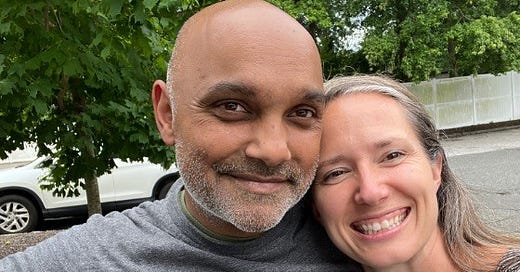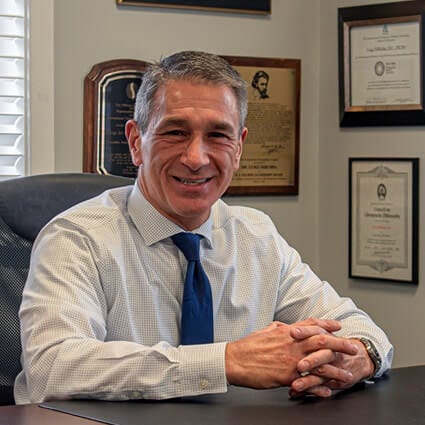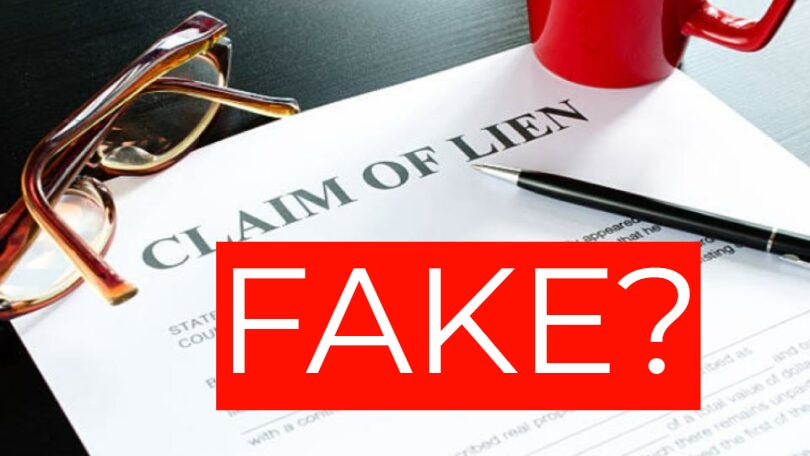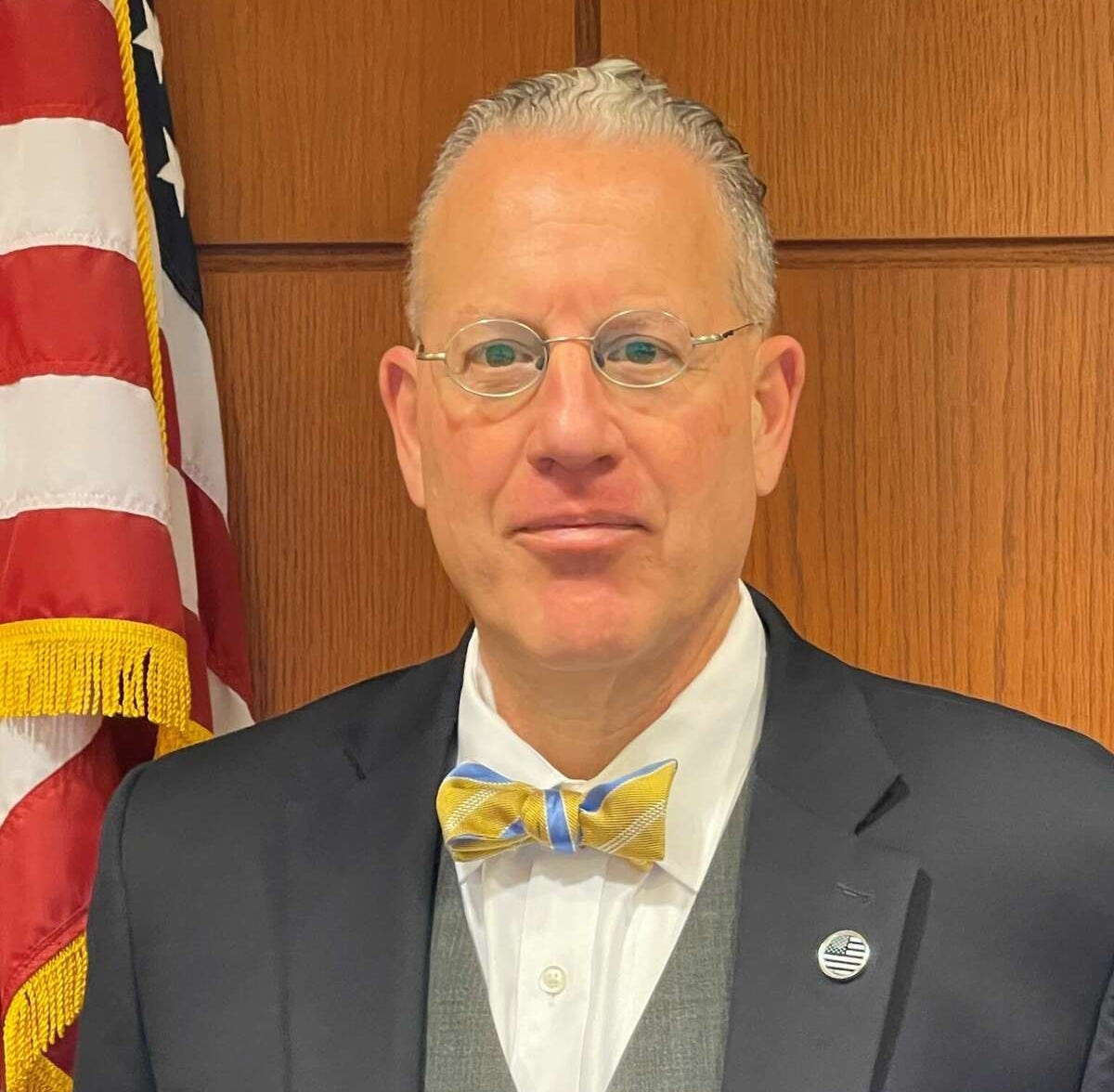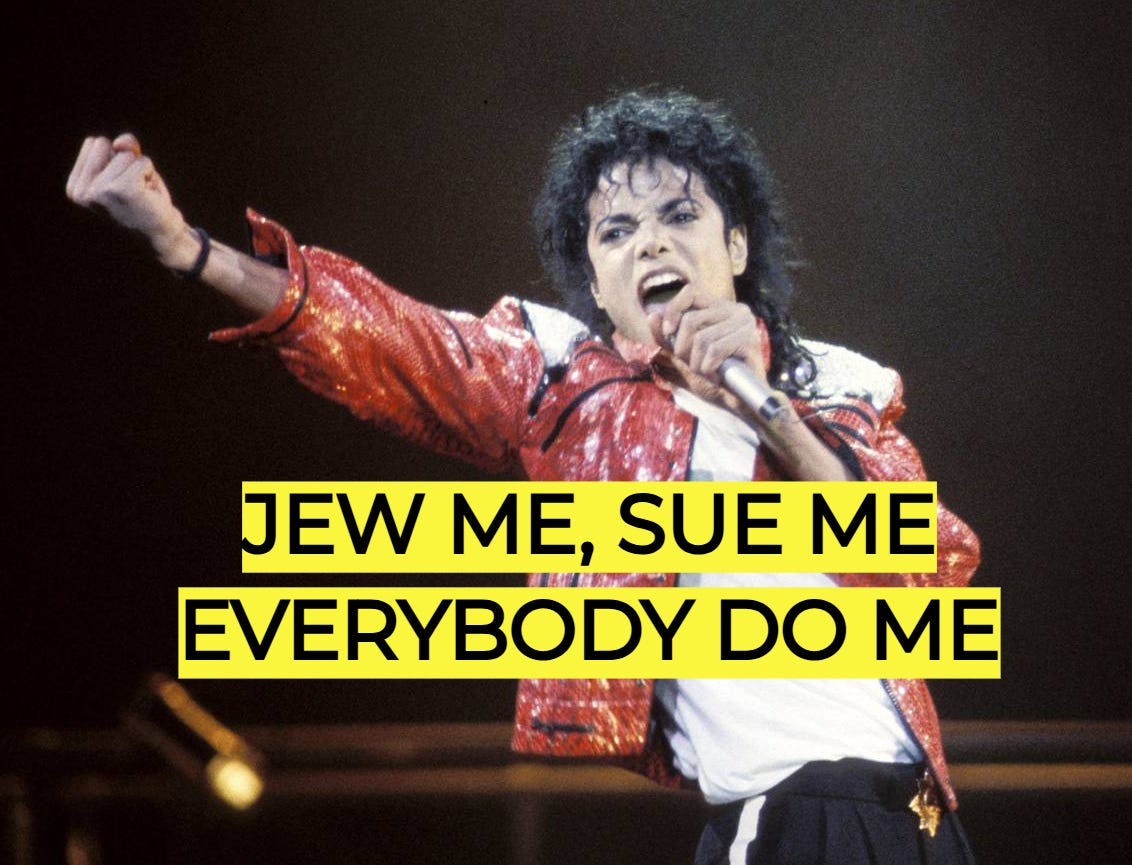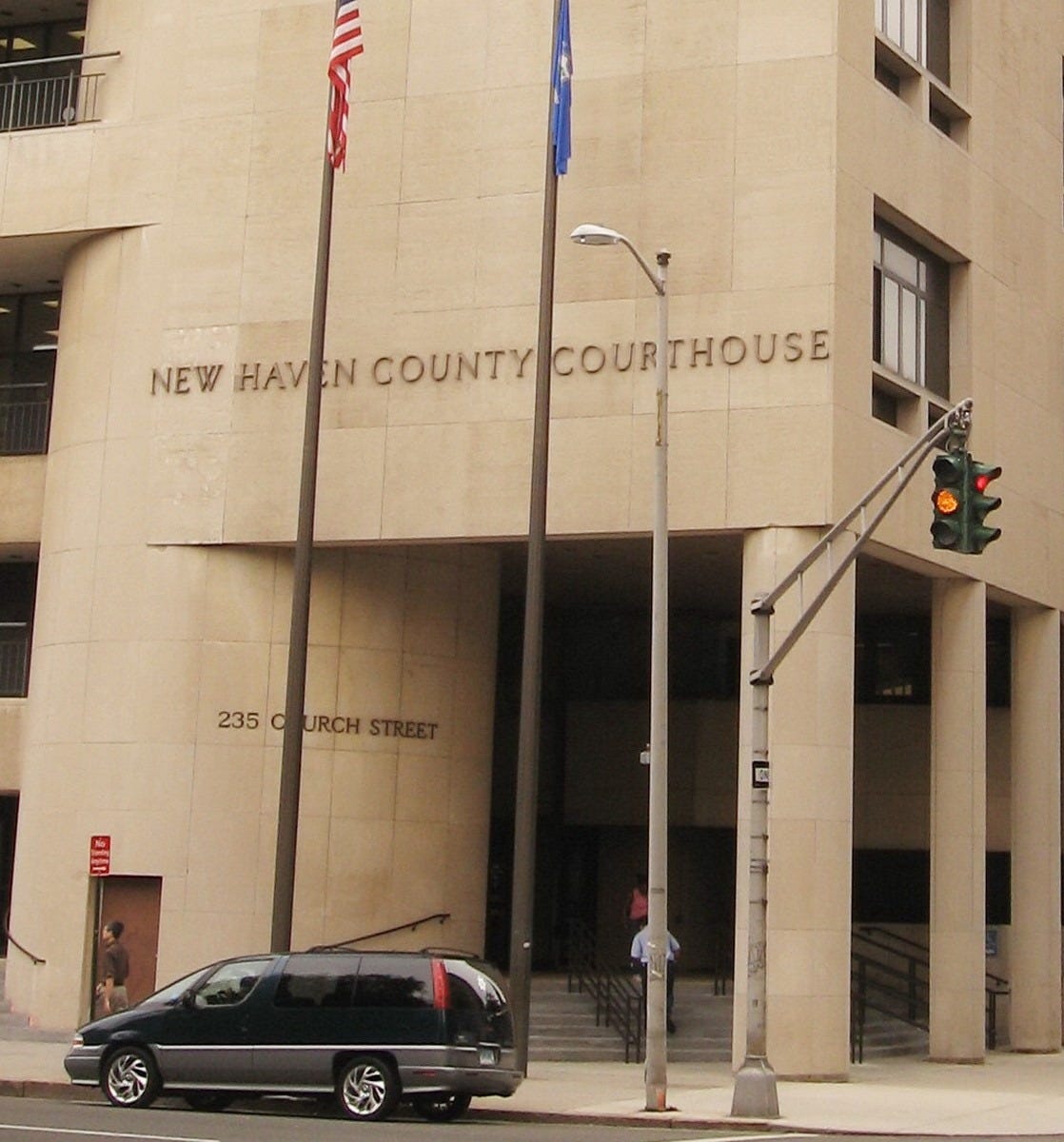Fraud, Default, and Divorce! Lawyers Face Grievances Over Fraudulent Property Lien
Scandal Engulfs Connecticut Attorneys Randi Calabrese and Mohan Sreenivasan Amid Fraudulent Lien Allegations
By Richard Luthmann
Everyone has work and professional obligations.
Did the courts give you a break when you were going through your divorce? If you are locked in litigation right now, what would the judge say if you asked for delays because you wanted to “get things right” at work?
Should the same standard apply to lawyers?
A bitter legal drama is unfolding in New Haven, where Dr. Luigi DiRubba, a Connecticut chiropractor, has filed scathing grievances against two high-profile divorce attorneys, Randi L. Calabrese and Mohan Sreenivasan.
The pair, once married and now divorcing, are accused of placing a fraudulent lien on property owned by one of Dr. DiRubba’s companies and engaging in a range of unethical conduct during the legal proceedings in his family court case.
When Dr. DiRubba asked for discovery in the case of discharge of the lien, Calabrese and Sreenivasan didn’t have the goods, so they defaulted. Part of the issue appears to be related to the hasty liquidation of the Calabrese and Sreenivasan law firm.
Realizing that they didn't have the goods after the lien discharge case was well on its way, Calabrese and Sreenivasan tried to bail on a case they knew they would lose—and which may have significant ethical implications.
Or was this “fraud on the court” planned, as Dr. DiRubba believes, and Calabrese and Sreenivasan are caught with their hands in the cookie jar?
“These lawyers betrayed my trust and used their positions to exploit me,” DiRubba said in an exclusive interview. “They turned my fight for justice into a nightmare.”
Maybe they are good people. Maybe they aren’t. Calabrese and Sreenivasan are going through a divorce. Do they deserve a break? You decide.
Fraudulent Lien Sparks Court Battle
The controversy centers on a $200,000 lien the attorneys placed on property owned by DiRubba’s company, Innate Realty LLC. Calabrese and Sreenivasan allegedly coerced DiRubba into signing a mortgage deed in January 2020 to secure continued family court representation.
The deed was not recorded until August 2020, a delay that DiRubba’s grievance describes as “suspicious and deliberate.”
“There was no valid debt to justify this lien,” DiRubba explained. “They knew this, and they did it anyway.”
Court filings reveal the lien may have violated automatic court orders issued during DiRubba’s contentious divorce proceedings. These orders barred either party from taking actions that could affect marital property without court approval.
The grievance asserts that the attorneys disregarded these mandates and filed the lien without notifying the court or obtaining consent.
Legal and Ethical Violations
In grievances filed with Connecticut’s Statewide Grievance Committee, DiRubba accuses the attorneys of violating several professional standards:
Fraud and Misrepresentation: Calabrese and Sreenivasan allegedly swore to false claims about the lien’s validity, violating Rule 8.4(c) of the Connecticut Rules of Professional Conduct.
Bad-Faith Litigation: The attorneys are accused of using the lien and subsequent litigation as tools to harass and intimidate DiRubba.
Coercion: DiRubba says he was pressured into signing the mortgage deed under false pretenses.
Negligence: The grievance highlights the seven-month delay in recording the deed as evidence of the attorneys’ failure to meet basic professional standards.
“These lawyers acted with complete disregard for the rules,” Dr. DiRubba said. “Their actions harmed me financially and emotionally.”
Gary Greene is DiRubba’s current attorney.
Less Than Stellar Legal Services
From all appearances, Calabrese and Sreenivasan’s legal representation of Dr. DiRubba was less than stellar.
Judge Leo V. Diana’s decision on the motions in Dr. Luigi DiRubba’s case sharply criticized attorneys Randi L. Calabrese and Mohan Sreenivasan. The Court highlighted numerous procedural failures and lapses in professional conduct, finding that their actions reflected poorly on their ability to represent their client responsibly and ethically.
Judge Diana noted instances of misrepresentation and carelessness in the attorneys' filings. These included motions contradicting prior court findings, inaccurate disclosures in sworn financial affidavits, and meritless claims.
The court also addressed the attorneys’ lack of preparation, citing their admission on record that they were “not fully prepared” despite having agreed to the case transfer months earlier. This lack of readiness and their apparent misunderstanding of procedural distinctions further undermined their credibility.
In addition to procedural missteps, Judge Diana disapproved of the attorneys' unprofessional conduct during the proceedings. The decision specifically called out a threat made during closing arguments, where defense counsel stated, “Everyone is getting sued, and that’s what we’re good at.”
The Court found this statement highly inappropriate and indicative of an aggressive, rather than constructive, litigation approach.
While Judge Diana stopped short of finding their actions to constitute bad-faith litigation, the Court described their repeated filing of baseless motions and misrepresentations as reckless and unnecessarily prolonging the litigation.
To address these deficiencies, Judge Diana ordered both attorneys to complete four legal ethics credits, including additional training on professional responsibilities. This remedial action was intended to correct their conduct and prevent future ethical lapses, reinforcing the importance of safeguarding the integrity of the legal process.
Fraudulent Lien, Discovery Default, and Personal Drama
Dr. Luigi DiRubba’s fight against attorneys Randi Calabrese and Mohan Sreenivasan escalated after the attorneys failed to respond to discovery requests in his lawsuit to discharge the fraudulent lien on his company’s property. This failure led to a motion for default, giving DiRubba a significant advantage in the case.
The discovery default adds to the mounting evidence against the attorneys and may result in a decisive victory for DiRubba.
Now, the attorneys’ personal lives have become entangled in the case. The duo, former marriage and law firm partners at Calabrese & Sreenivasan LLC, are locked in their own contentious divorce. This turn of events has raised questions about their professional conduct during DiRubba's legal representation.
The grievances allege personal and professional conflicts may have compromised their ethical obligations and conduct in connection with the filed lien and subsequent litigation. However, Calabrese and Sreenivasan have previously demonstrated an ability to navigate personal and public firestorms.
The connection between their internal disputes and their behavior in DiRubba’s case underscores a pattern of questionable judgment.
A Pattern of Misconduct and Calls for Accountability
The grievances against Calabrese and Sreenivasan outline a troubling pattern of unethical practices. These include filing a fraudulent lien, pursuing baseless legal claims, violating judicial orders, and coercing DiRubba into signing an invalid mortgage deed.
The lien, recorded months after its execution, lacked any legitimate debt or promissory note to support its validity, violating automatic court orders protecting marital assets. The grievances describe this as a calculated misuse of judicial processes to intimidate and financially harm DiRubba.
The allegations extend beyond the fraudulent lien. The attorneys are accused of engaging in bad-faith litigation and exploiting DiRubba’s vulnerability during his contentious divorce.
During his interview, DiRubba recounted how Sreenivasan initially approached him in a courthouse hallway, offering unsolicited legal advice and promising to help him fight against a biased system. Instead, according to DiRubba, Sreenivasan and Calabrese manipulated his trust and exacerbated his legal troubles.
The grievances seek serious consequences for the attorneys, including public reprimands, disbarment, and nullifying the fraudulent lien and related filings.
Dr. DiRubba hopes these measures will prevent similar misconduct from harming others. He views his legal battle as a fight for accountability and justice, not just for himself but for all victims of legal malfeasance and malpractice.
For DiRubba, the stakes go beyond personal vindication; his case is about restoring integrity to the legal profession and ensuring that attorneys who abuse their power face appropriate consequences.
What’s Next?
Calabrese and Sreenivasan could face disciplinary action from the Statewide Grievance Committee as the grievances move through the review process. Meanwhile, DiRubba continues his legal fight to have the lien discharged and his name cleared.
“This case highlights the urgent need for accountability in the legal profession,” Dr. DiRubba said. “Lawyers must be held to the highest ethical standards; this case is a clear example of why.”
With the attorneys’ default in discovery and mounting evidence of misconduct, DiRubba’s fight appears to be gaining traction.
“Justice is slow,” he said, “but it’s worth it.”


